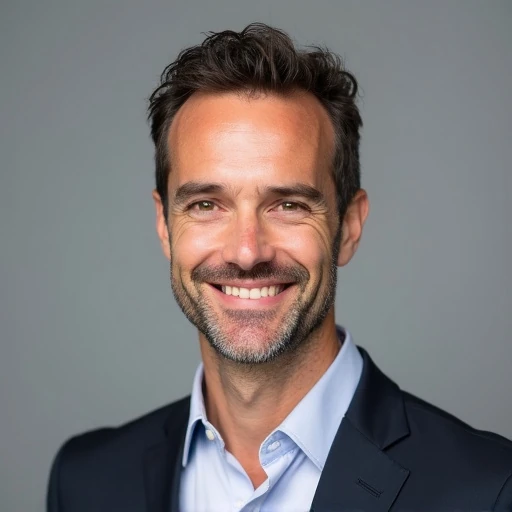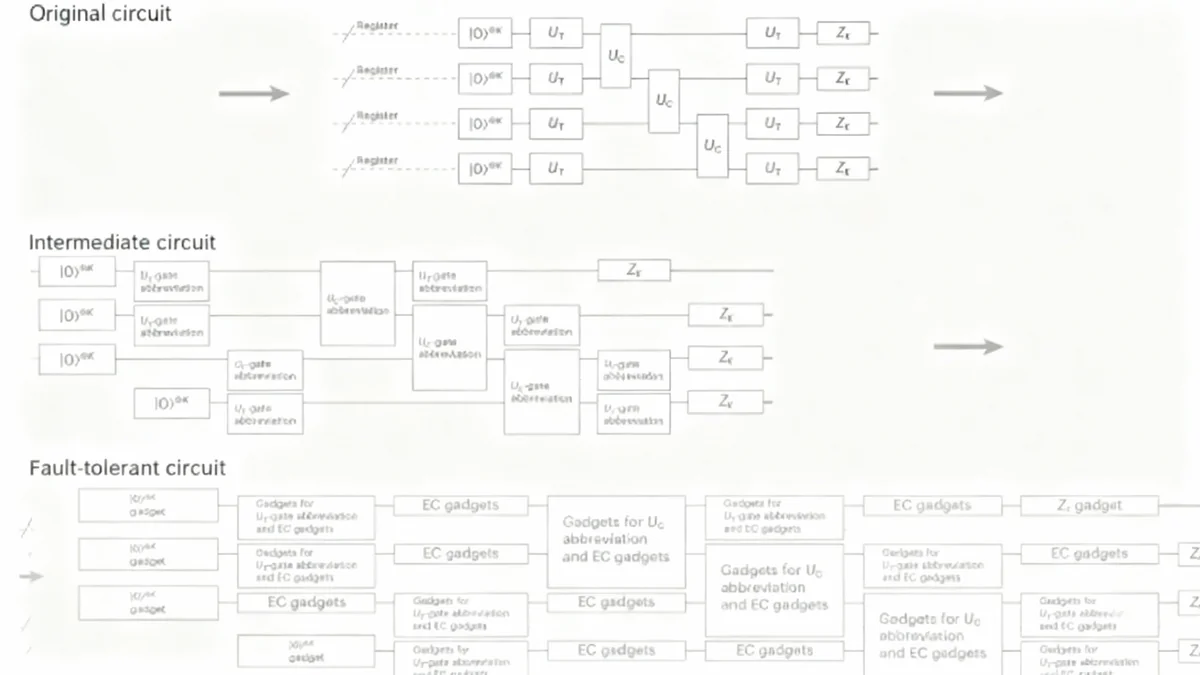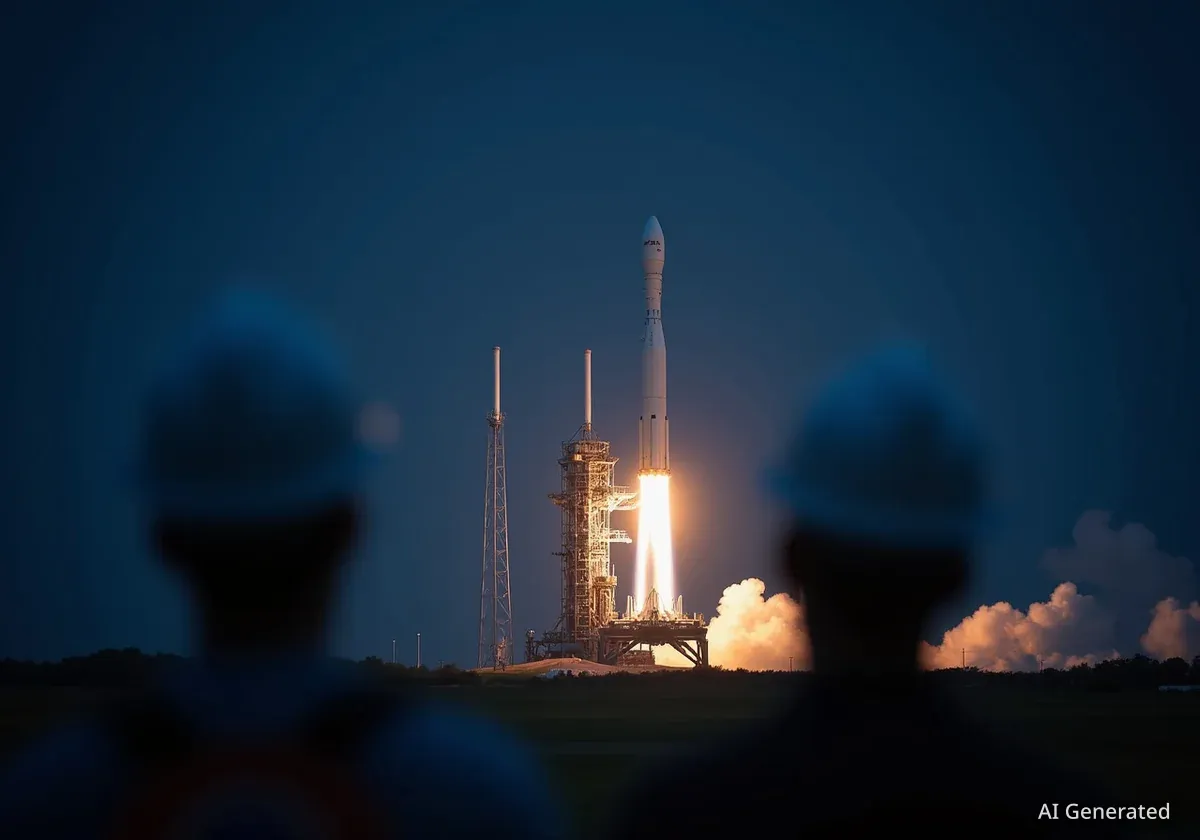A new interpretation of quantum mechanics proposes a radical shift in our understanding of the universe. According to physicist Vlatko Vedral, the fundamental building blocks of reality may not be particles, space, or even time, but rather the abstract information contained within quantum numbers.
This perspective, emerging a century after Werner Heisenberg's foundational work, seeks to resolve long-standing paradoxes in physics by removing the observer from the equation. If proven, this theory could reshape our most basic concepts of existence.
Key Takeaways
- A new theory proposes that quantum numbers, not particles or spacetime, are the fundamental components of reality.
- This approach eliminates the need for an "observer," a concept that has complicated quantum mechanics for 100 years.
- Physicist Vlatko Vedral suggests that space, time, and particles are emergent properties, not fundamental ones.
- The theory could potentially unify different areas of physics and point toward a reality beyond current quantum theory.
Rethinking the Foundations of Reality
For a century, quantum mechanics has been our most successful theory for describing the universe at its smallest scales. However, it has always been plagued by a central puzzle: the role of the observer. The act of measuring a quantum system seems to force it into a definite state, leading to questions about whether reality is dependent on our observation.
A bold new framework aims to cut through this philosophical knot. The central idea is to stop focusing on particles and their positions in space and time. Instead, this vision asserts that the most fundamental aspect of reality is information, specifically the information encoded in quantum numbers.
Quantum numbers describe the intrinsic properties of a system, such as its energy or spin. In this view, these numbers are not just labels for particles; they are the reality. Particles, as we perceive them, are merely manifestations of these underlying informational states.
The Observer Problem in Quantum Mechanics
The "observer effect" stems from the early days of quantum theory, notably from Werner Heisenberg's work in 1925. It describes how the act of measurement influences the system being measured. This led to deep philosophical debates about whether a quantum state is real before it's observed, a problem famously illustrated by Schrödinger's cat paradox.
A Universe Without Particles or Spacetime
This new perspective challenges our most intuitive notions about the world. If quantum numbers are the true essence of reality, then what happens to the familiar concepts of particles, space, and time? According to this theory, they are not fundamental at all.
Instead, they are seen as emergent phenomena. Much like the sensation of wetness emerges from the collective behavior of H2O molecules—none of which is individually wet—space and time may emerge from the complex interactions of fundamental quantum information.
"We have been tied to the idea that we must measure particles in a specific location at a specific time," explains Vedral in his writings on the subject. "But what if those concepts are the illusion? What if the universe is built from pure information, and everything else we see is a secondary effect?"
This approach suggests that our perception of a smooth, continuous spacetime is a large-scale approximation. At the most fundamental level, there might only be a network of quantum relationships, from which the geometry of our universe arises.
Information as a Physical Quantity
The idea of information being physical is not new. In the 1940s, Claude Shannon developed information theory, quantifying information in "bits." Later, physicists like John Archibald Wheeler proposed the "it from bit" hypothesis, suggesting that physical reality originates from information. This new theory takes that concept a step further by defining reality through quantum numbers.
The Path to Experimental Verification
A scientific theory is only as good as its testable predictions. While this vision of a reality built from quantum numbers is abstract, Vedral proposes specific experiments that could validate its core tenets. These tests are designed to probe the nature of quantum systems in ways that could distinguish this interpretation from traditional ones.
The proposed experiments focus on demonstrating the primacy of quantum numbers over classical concepts like position and momentum. The goal is to show that reality behaves in ways that are inconsistent with a particle-based view but perfectly aligned with an information-based one.
Three key experiments have been outlined to prove the case:
- Testing Quantum Indistinguishability: Experiments would be designed to show that identical quantum states are truly identical in an informational sense, more so than physical particles could ever be.
- Probing Non-locality: Further tests on quantum entanglement could reveal deeper connections that are better explained by shared information rather than signals traveling through space.
- Searching for Quantum Gravity Clues: By treating spacetime as emergent, this theory may offer new ways to test for quantum effects in gravity, potentially providing clues for a unified theory of physics.
If these experiments yield the expected results, it would represent a monumental shift in physics, moving us beyond the framework established a century ago on the island of Helgoland.
Implications for the Future of Physics
Moving beyond a reality of particles and spacetime is a profound intellectual leap. It forces us to confront the possibility that the world is fundamentally abstract and informational. However, the potential rewards are immense.
By removing the observer and other metaphysical baggage, this framework could offer a more consistent and logical description of the quantum world. It might also provide a new path toward solving some of physics' biggest mysteries, such as the nature of dark matter and the unification of quantum mechanics with general relativity.
This is not just a philosophical exercise. It is a serious scientific proposal that could redefine the boundaries of what we consider to be real. As Vedral suggests, wading into these deep conceptual waters might be the only way to find what lies beyond our current understanding of quantum theory.





